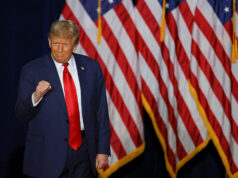Privatization of some Customs, BIR functions under study
THE Department of Finance (DoF) is looking to privatize some functions of its tax-collecting agencies to minimize corruption.
Finance Assistant Secretary Mark Dennis Y.C. Joven said the department is currently studying the possibility of privatizing some processes of the Bureau of Customs (BoC) and the Bureau of Internal Revenue (BIR) within the bounds of the law.
“We’re studying whether or not some customs functions may be privatized legally, and assuming it is not, we can just solicit help from these industry groups to at least help in ensuring that reporting of imports is accurate,” Mr. Joven told reporters on the sidelines of the Federation of Philippine Industries membership meeting on Friday.
“Legally speaking, if it’s a sovereign function, we cannot privatize it. So we need to identify (items on the) value chain (that are) allowed to be privatized, and whether doing so would make things more efficient,” he added.
Asked whether the review also includes the BIR, Mr. Joven responded positively.
The review follows a number of high-profile incidents such as the import of substandard steel bars that passed through customs, and the prevalence of counterfeit tax stamps — which led to a shuttering of a cigarette firm.
One of the most common corrupt practices in the BoC is the port officials’ adjustment of shipment valuations in favor of the importer, lowering the latter’s tax bill.
Mr. Joven also noted that the Internal Revenue Stamps Integrated System — which was put in the spotlight after Mighty Corp.’s cigarettes was found bearing fake ones — is subcontracted to the state-run firm Asian Productivity Organization Production Unit.
“So we’re studying if we can do that in partnership with the private sector… you need private sector involvement on these things,” he said.
The DoF official also noted that privatization of some functions, such as the processing of tax refunds, has been implemented in other countries like Singapore and some European states.
However, Mr. Joven added: “We need to make sure whether certain particular parts can be transferred to a private enterprise, and whether it’s beneficial.”
“We need to see what the proper vehicle is to implement those administration initiatives. Is it done 100% through government effort or do you need to tie up with private sector, do we need to tie up with industry groups?” he said.
Mr. Joven added that the Finance department may wait for the passage into law of the tax reform program before they can implement possible privatization efforts, for the changes to be in sync with the proposed amended tax code.
“We need to know first what the final product is before we implement. But right now we’re already started studying how to implement. So that when we need to implement, only minor changes are needed.” — Elijah Joseph C. Tubayan



